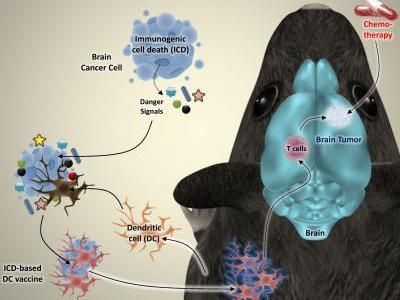YM BioSciences enrolls first US patient in Phase II randomized, double-blind brain metastases trial for nimotuzumab
Advertisement
YM BioSciences Inc. announced that the first US patient has been enrolled in its randomized, double-blind trial evaluating nimotuzumab in patients with brain metastases from NSCLC at the Florida Cancer Institute - New Hope. This trial initiation follows recent clearance from the US FDA announced on January 26, 2010 allowing the Company to enroll patients at US clinical sites for two of its international and ongoing randomized, double-blind Phase II trials of nimotuzumab. YM anticipates that patients will also begin to be enrolled in the near future in its trial in patients with NSCLC ineligible for curative treatment and who are being treated with radiotherapy palliatively. The current trial designs were informed by previous trials with nimotuzumab in the same indications.
"The enrollment of the first adult US patient into our nimotuzumab trial in brain metastases from NSCLC is an important milestone for YM, allowing adult US patients the opportunity to receive nimotuzumab and a broader group of US oncologists to gain experience with it," said David Allan , Chairman and CEO of YM BioSciences Inc. "The blinding of this trial is feasible because nimotuzumab does not produce the severe toxicities typical of the currently marketed EGFR class of antibodies, providing the potential for an improvement on brain mestastases control and survival with an important difference to the quality of life for patients. Access to nimotuzumab in the US was previously limited to pediatric patients and recruitment in a trial in inoperable brain cancer in that population was recently completed. Nimotuzumab continues to demonstrate efficacy both in clinical trials and in the numerous countries in which it is marketed without causing the severe toxicities, demonstrating the best-in-class prospect this drug holds that will now be available to adult US patients."
This Phase II study, comparing nimotuzumab plus whole-brain radiation therapy (WBRT) to WBRT alone in patients with brain metastases from NSCLC, has a target enrollment of 88 patients and is also being conducted internationally. The primary efficacy endpoint is the difference in intracranial disease progression over six months.
Other news from the department research and development
Most read news
More news from our other portals
See the theme worlds for related content
Topic world Antibodies
Antibodies are specialized molecules of our immune system that can specifically recognize and neutralize pathogens or foreign substances. Antibody research in biotech and pharma has recognized this natural defense potential and is working intensively to make it therapeutically useful. From monoclonal antibodies used against cancer or autoimmune diseases to antibody-drug conjugates that specifically transport drugs to disease cells - the possibilities are enormous

Topic world Antibodies
Antibodies are specialized molecules of our immune system that can specifically recognize and neutralize pathogens or foreign substances. Antibody research in biotech and pharma has recognized this natural defense potential and is working intensively to make it therapeutically useful. From monoclonal antibodies used against cancer or autoimmune diseases to antibody-drug conjugates that specifically transport drugs to disease cells - the possibilities are enormous






















































